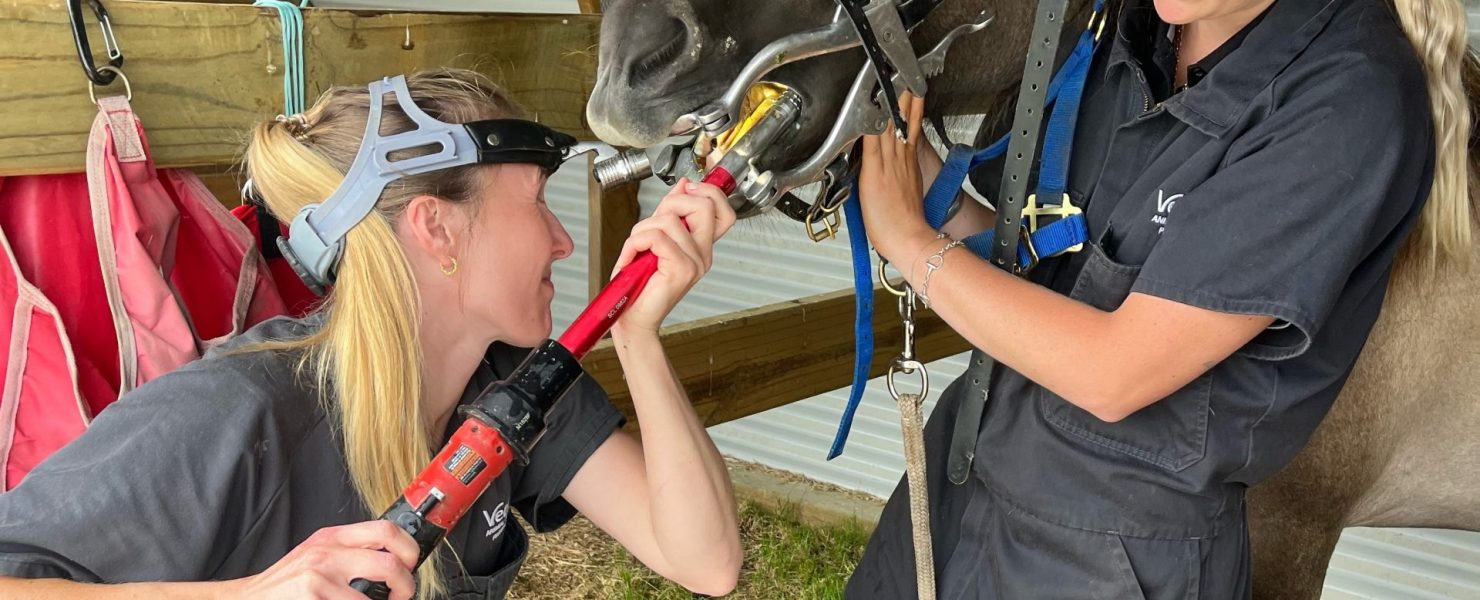
Regular dental check-ups are important for two reasons. Firstly, like people, to assess dentition and wear and secondly, because we ride them with bits and bridles, so it’s important to make sure (normal) sharp dental edges aren’t interfering with the cheeks or tongue when wearing tack.
A routine dental procedure, now more commonly performed with motorised power tools, is straight forward and quick. Sedation is always recommended, even for compliant patients to ensure a thorough examination at the back of the mouth is possible and the power tools aren’t resented. A horse’s normal dentition typically produces sharp edges on the outside of the upper cheek teeth that can rub on the inside of the cheeks, and on the inside of the lower cheek teeth that can interfere with the tongue, especially when horses are playing with the bit.
A host of abnormal findings associated with uneven wear can either be corrected or maintained with regular check-ups. Until severe however, most will go unnoticed to owners, which is why regular checks are important.
Many dental issues go unnoticed until they become severe. However, some common signs that may indicate dental problems include:
It is important to note that these signs are not exclusive to dental disease and should always be followed up with a full veterinary examination.
Tooth extractions are relatively uncommon whereas, retained or broken deciduous teeth or caps are removed in 2-5 year olds quite frequently, often associated with some of the clinical signs already mentioned either when ridden or when eating.
For most horses, annual dental check-ups are sufficient. However, more frequent exams may be necessary for:
By prioritising regular dental care, horse owners can help ensure their equine partners stay comfortable, healthy, and performing at their best—both in the paddock and under saddle!